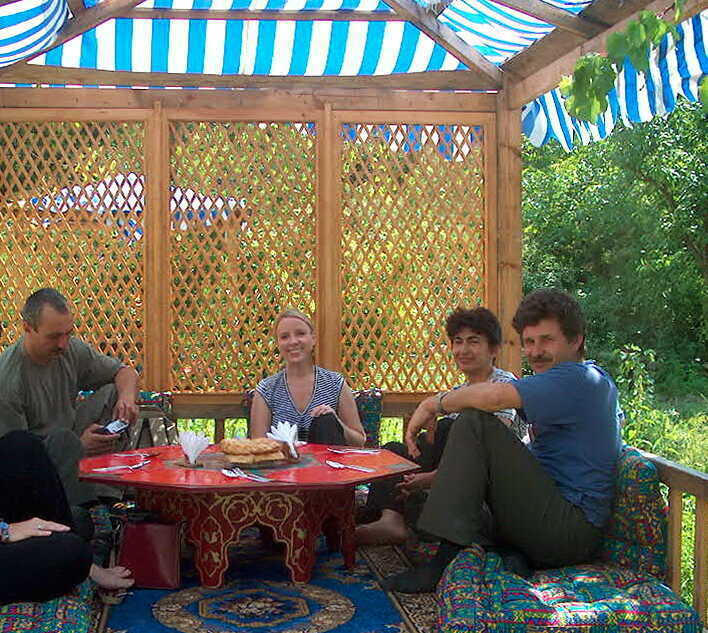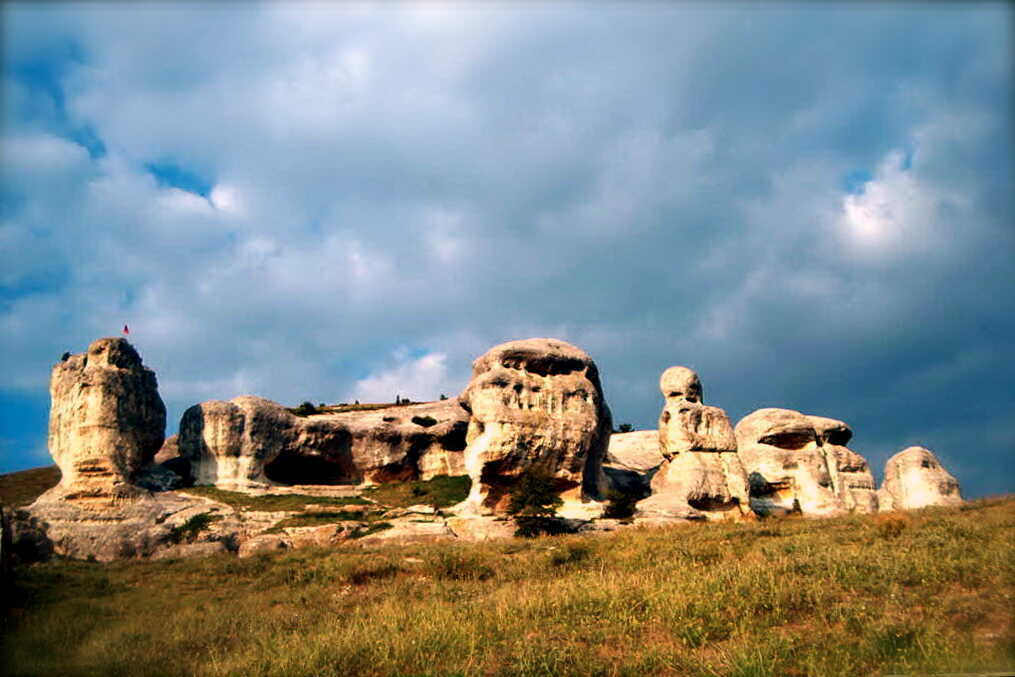The People of Crimea & Ukraine


(Originally published March 2014)
Several years ago I traveled through Ukraine, including Kiev, Odessa, Lviv, and the ethnic Tatar villages of Crimea. As of right now, those villages have been taken over by Russian troops.
I arrived 12 years after the fall of the Iron Curtain. Locals were still coming to terms with what freedom and Democracy might actually mean. They were eager, open and excited – but still learning that they could actually take action to improve their own living conditions.
One evening, sitting in the garden of a family home, we giggled about the neighbor who had marched down to city hall in a rage, demanding that local authorities stop turning off the municipal water supply without notice. (She’d been in the middle of doing laundry.) The action itself was startling. Risky – or at least it would have been during the Soviet era. But the water had not been turned off since! This was reason to celebrate, and so we did.

Over the course of several weeks, I stayed in the homes of five or six families, meeting their children, eating delicious food and touring historic sites.
One of my favorite stays was with Bahatgul, a willowy, yoga-loving mom who lived in the village of Bakhchiseray with her husband, karate-champion son and deaf daughter. Her son was dating a Russian girl and both families were supportive, despite complicated political histories. She shrugged when I asked about it. “As long as they’re happy,” she said. “We are all just people.”
Bahatgul ran a three-story bed and breakfast inn that she and her husband had literally built from the ground up, brick by brick. The floors were made of cool stone tiles. Across a walled courtyard, next to a vegetable garden, was a separate kitchen where her mother-in-law cooked huge, meat-filled dumplings for our dinner. We gathered with the family around plates of homemade bread, freshly sliced tomatoes and platters of basil leaves and dill sprigs that had been picked that afternoon.
Afterwards, in the courtyard, we poured wine and passed a plate of cookies. The air smelled of jasmine.
Bahatgul reached for her guitar and began singing a song about the village. The words spoke of the land, the beauty and history of the place, and her deep connection to it. Her voice soared and trilled, then dropped to an intimate whisper. The poignancy of the moment left us all in tears. In that moment, I fell in love with Bakhchiseray, too.

Overall, the world looked pretty rosy and filled with opportunity. After decades of Soviet repression, Ukrainians were grappling with new and sometimes conflicting ideas. For instance, how could they form an alliance like a tourism bureau, (which sounded suspiciously like a Communist collective to them), while still maintaining their new found individuality?
Their desire for visitors was way ahead of the available infrastructure, too. But the people were passionate and determined. They wanted real feedback on what Western travelers would think of their restaurants, hotels and attractions.
For me, the experience was powerful, not least because of my translator Asan. He was just 19 at the time, but age didn’t matter. I began to call him “Dad” because he literally took care of everything.
Asan even accompanied me to the glassed-in office of the public toilet, to help me place my toilet paper order. (Amazing what we take for granted as Americans.)
After spending literally every waking moment together for weeks, our goodbyes at Simferopol Airport, were tearful. Just as I got ready to pass through the security turnstile, Asan stopped me. Shyly, and with a ball-point pen, he carefully wrote the word “God” in my open palm. He said it was to keep me safe on my flight.
I often think about Asan and Bahatgul, Nadiman and Irena and Dilyara and Renart and the guy from the American embassy (Mark?) who took me out for Italian food in Kiev.
Asan and I still stay in touch through letters and social media, making jokes, discussing philosophy, checking on each other during natural disasters, holidays, and Russian incursions. We chat about our spiritual journeys, too. Asan has been through an ongoing series of political upheavals in Ukraine. He always feels that things will soon get better. So far, that’s been his experience.
Today I saw photographs of Russian tanks on the roads not far from Bahatgul’s bed and breakfast inn. I saw video of soldiers in front of the airport where I last saw Asan.
Tonight, my heart is with the people of Crimea.
I hope everyone involved – and everyone who hears in passing that something is happening on the other side of the globe – remembers that this affects real people, with real hopes and dreams, with businesses and families, with pets, grandmothers, gardens and guitars…
Please. Don’t forget about the people of Crimea and Ukraine.
(Originally posted March 2014)


